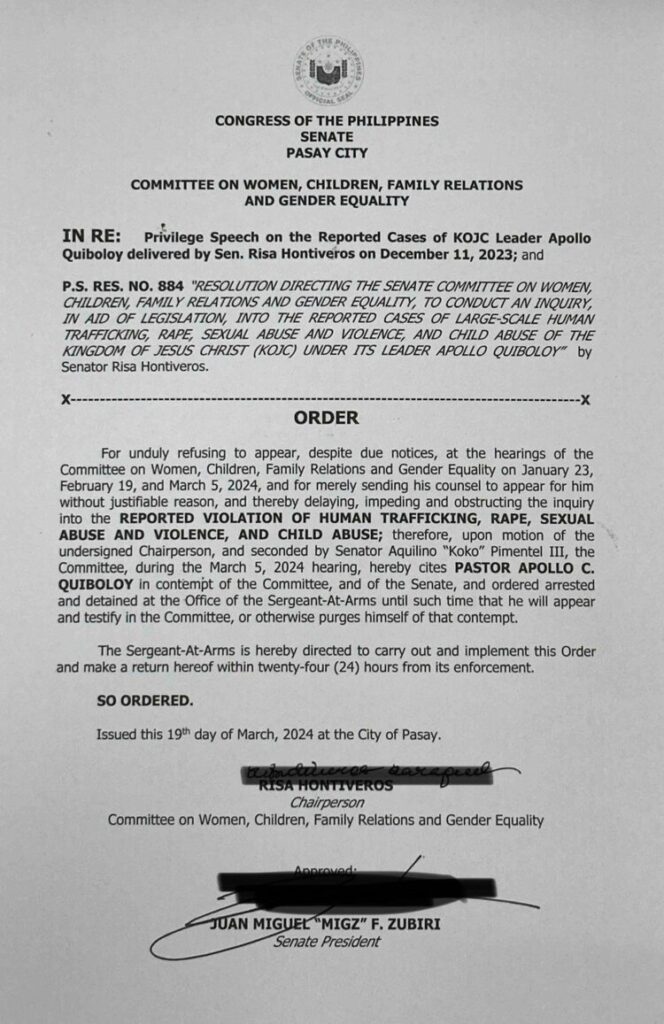Apollo Quiboloy, the self-proclaimed “Appointed Son of God,” has found himself entangled in a web of controversy as allegations of rape and human trafficking swirl around him. The Filipino religious leader, who heads the Kingdom of Jesus Christ, The Name Above Every Name, has been ordered arrested and detained at the Senate, marking a significant escalation in the legal scrutiny he faces.

Quiboloy’s rise to prominence began in the 1980s when he established his religious organization, which has since amassed a substantial following both in the Philippines and abroad. Claiming to be the “Appointed Son of God,” he has wielded considerable influence over his followers, who regard him with reverence and loyalty.
However, Quiboloy’s aura of spiritual authority has been tarnished by serious allegations leveled against him. Accusations of rape and human trafficking have cast a shadow over his religious empire, prompting calls for accountability and justice.
The Senate’s decision to order Quiboloy’s arrest and detention comes after his repeated refusal to cooperate with the chamber’s investigation into the allegations against him. Despite being summoned to appear before the Senate to address the accusations, Quiboloy has remained defiant, asserting his innocence and dismissing the proceedings as a smear campaign orchestrated by his detractors.
The gravity of the allegations cannot be understated. Rape and human trafficking are heinous crimes that inflict untold suffering on victims and undermine the fabric of society. If proven true, the allegations against Quiboloy would represent a profound betrayal of trust, particularly considering his purported role as a spiritual leader.
The case also underscores broader issues surrounding the intersection of religion, power, and accountability. Religious leaders often wield significant influence over their followers, which can make them both revered figures and susceptible to abuse. When allegations of misconduct arise within religious organizations, they can be met with reluctance or resistance to investigate, further exacerbating the harm inflicted on victims.

In the case of Quiboloy, the Senate’s intervention represents a crucial step towards seeking justice for the alleged victims and holding those responsible accountable for their actions. However, it also highlights the challenges inherent in addressing allegations of abuse within religious institutions, where loyalty and devotion to a charismatic leader can cloud judgment and impede efforts to uncover the truth.
As the legal proceedings against Quiboloy unfold, it is essential to uphold the principles of due process and ensure that all parties are given a fair opportunity to present their case. Regardless of the outcome, the case serves as a stark reminder of the importance of vigilance in safeguarding against abuse and exploitation, particularly within contexts where individuals wield unchecked authority in the name of religion.
